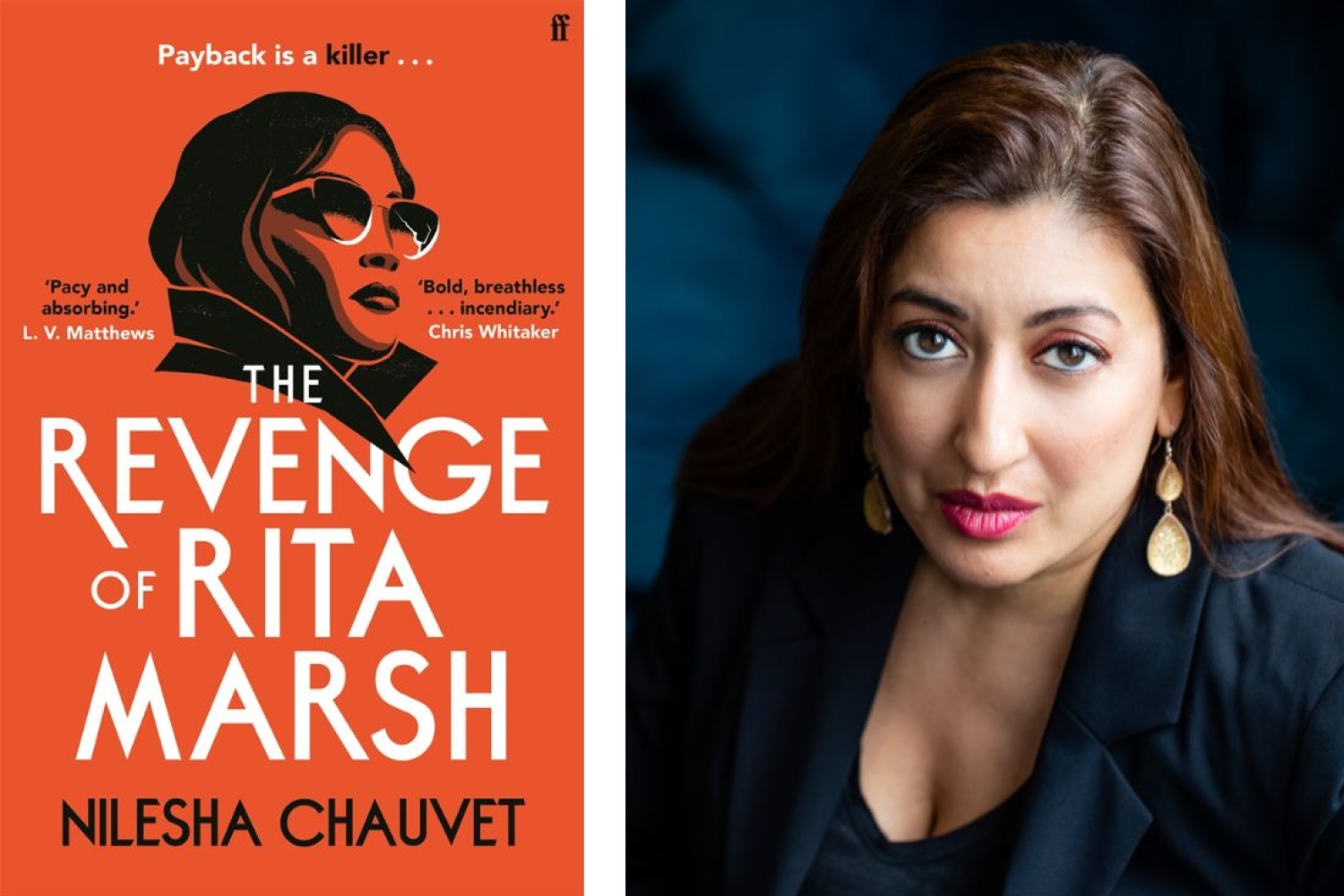

In today’s world, where trust in traditional institutions is waning and social structures seem increasingly fragile, the themes of justice and morality are more pertinent than ever. The complexities of these themes are vividly explored in Nilesha Chauvet’s debut novel, The Revenge of Rita Marsh, that delves into the realm of vigilante justice. We talk to her about the themes, inspiration and process of crafting her first novel.
THE THEME OF VIGILANTE JUSTICE
I read Lolita, Nabokov’s most famous and controversial novel, at 14. I was quite struck (and disturbed) by Humbert’s all-consuming and obsessive narrative voice, his preoccupation with the nymphet Dolores Haze. I began to explore the theme of obsessive love more deeply – delving into the darkest realms of what society considers ‘forbidden’ and ‘taboo’. I discovered many stories belonging to this great cannon of literature and was eventually inspired to write my own.
Over the years, an idea had formed featuring a young girl, Leila, who engages in an illegal, underage stu- dent-teacher affair. As it turned out, I didn’t complete the novel for twenty years, partly because I wanted to create a new dimension to an otherwise familiar tale. In 2018, watching YouTube, I caught sight of a Good Morning Britain video. Piers Morgan was engaged in a fiery debate with a senior police officer and a well-intentioned civilian, running a group of paedophile hunters. I experienced a penny-drop moment as it dawned: Leila had a friend. Her name was Rita Marsh. She was unlike any other woman I’d ever met.
I knew then, this vigilante story must be told.
Rita’s story, her revenge, is the story whose impetus is the broken world we all live in today, where social structures are crumbling, contracts are torn, where faith and trust in governments and the police is at an all-time low. But I wanted there to be a love story, too. All this, my attempt to write a complex identity thriller with a difference.
RESEARCH PROCESS
There’s been a great deal of news coverage in the UK about Paedophile Hunting. I began with watching The Paedophile Hunter, a documentary aired on Netflix (2019) which examines the work of Stinson Hunter and his gang who pose as underage girls to honey-trap Paedophiles. After
that, I read a book entitled Paedophile Hunters by Richard W. Hardwick (2020). I began noticing groups forming all over the UK, and examined videos of their stings, commonly uploaded onto Facebook. I also read a great number of news articles and online police interviews in order to better understand how it all worked, and the driving motivation for this form of vigilantism. I underwent a deep exploration of the ethical questions it posed, too. Today, given that the practice of Paedophile Hunting has grown, there are academic papers which also explore the subject.
THE WRITER’S HOPE
In the greater context of an ever-changing world, I believe now is the most exciting time in human history to write stories. But what doesn’t change is our universal quest for truth. Sometimes, in order to fully explore this, we must delve into the very darkest realms of human experience.
I feel it’s important that readers take from novels what they will, without any imposition or expectation from the novelist. A novelist must tell the story and present an authentic channelling of a character’s tale, however disturbing. It’s then up to readers to decide what they think, how they feel.
I hope I’ve written a cracking tale that will appeal to thrill seekers, but which offers depth and stimulates debate on an increasingly important issue concerning the protection of children from the dangers of predators. But also, what it means to take matters into your own hands when you feels a sense of power loss, and how far is too far if seeking vengeance.
TIPS TO WRITERS AS A DEBUT AUTHOR
Write. A lot. And regularly. (And then see what there is). It’s important to fully commit to the process without expectation of outcomes. So much of the magic and joy of writing is in the process, so it’s important to be disciplined about it. I believe, very strongly, that each book will eventually find its audience, but it’s vital to ensure that your book is the very best it can be in order to earn its place in the world.
Words Paridhi Badgotri
Date 24.07.2024